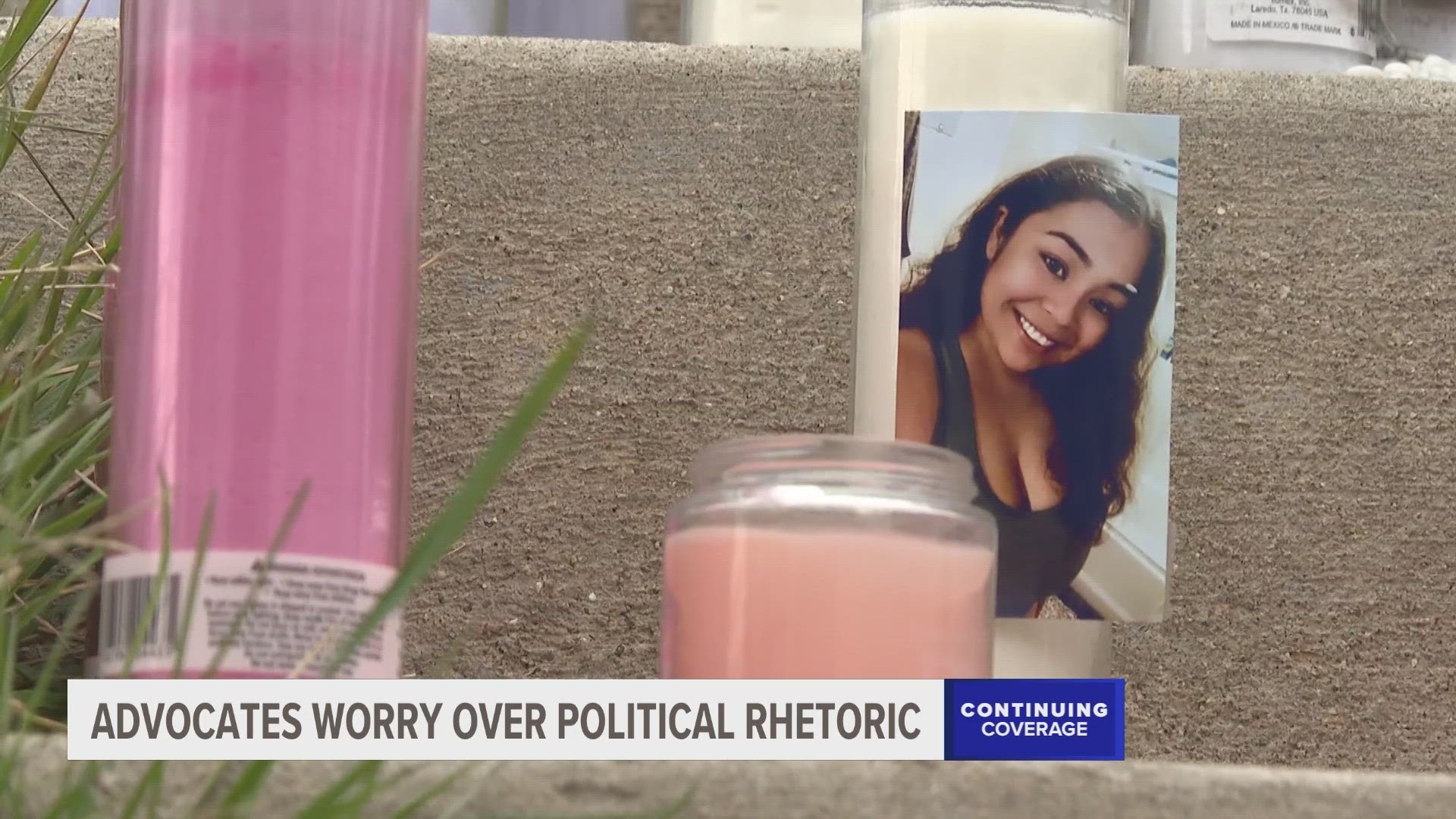GRAND RAPIDS, Michigan — The death of 25-year-old Ruby Garcia, alleged to have been killed by murder suspect Brandon Ortiz-Vite, has given way to a national spotlight after it was confirmed that Ortiz-Vite entered the country illegally and documents showed he confessed to shooting her and leaving her to die on US-131.
The situation has caused some in the political realm to call for policy change amid a death they believe, should the charges be true, was avoidable.
"It's why we really do need to secure our border," Michigan GOP Chair Pete Hoekstra said. "We're in favor of immigration, but let's manage our immigration process. You know, personally, I'm an immigrant. My parents emigrated, you know, we came through a process. And that's what we need to get back to."
When approached for comment regarding the circumstances surrounding Garcia's death, Rep. Hillary Scholten (D), who represents the Grand Rapids area in Congress, expressed sympathy for Garcia and her family.
"The death of Ruby Garcia is a tragedy," Scholten said. "That's not nearly a strong enough word. And we mourn her loss of life."
Scholten also said she believes community members are right to raise concerns upon learning of Ortiz-Vite's confession to the killing. She also faulted Republicans for what she feels has been insufficient policy and the stalling of a bipartisan deal in the Senate meant to provide border policy reform funding.
Aside from lawmakers and state politicians, former President Donald Trump also announced this week he intends to visit Grand Rapids on Tuesday to discuss the topic of the U.S. border.
Some of the political rhetoric surrounding Ortiz-Vite's status and alleged crimes, and on the topic of immigration policy following Garcia's death, some advocates feel, risks stigmatizing and harming the larger immigrant community.
"There is a concern from our standpoint that these communities, if they are labeled or painted with such a broad negative brush, [it] could lead to further exploitation, further victimization, unfortunately," said Gonzalo Peralta, who works as an attorney for the Michigan Immigrant Rights Center.
Through his position, Peralta works with immigrant communities he says are impacted by national narratives.
"The majority of immigrant communities don't act in this manner," Peralta said. "This is not the common occurrence. So by saying, yes, your concerned about the victim, but then by connecting the status of the victimizer with the act of victimizing, that's where you have the problem, because then, in the minds of the people hearing the message are connecting the two. And that's not the reality."
Peralta said care must be taken to also concentrate on positive stories amongst immigrants in order to separate legal status from acts.
Such an approach, Peralta believes, would serve to combat potential stigmatization and conflation between immigration status and perpetrating violence.
"The manner in which someone arrived in the US does not mean that they will all act in this in this way," Peralta said.
"So, you need counter reporting, you need counter media messaging and you need local grassroots efforts to combat these kinds of negative messages that are being promulgated," Peralta said.
►Make it easy to keep up to date with more stories like this. Download the 13 ON YOUR SIDE app now.
Have a news tip? Email news@13onyourside.com, visit our Facebook page or Twitter. Subscribe to our YouTube channel.
Watch 13 ON YOUR SIDE for free on Roku, Amazon Fire TV Stick, Apple TV and on your phone.

